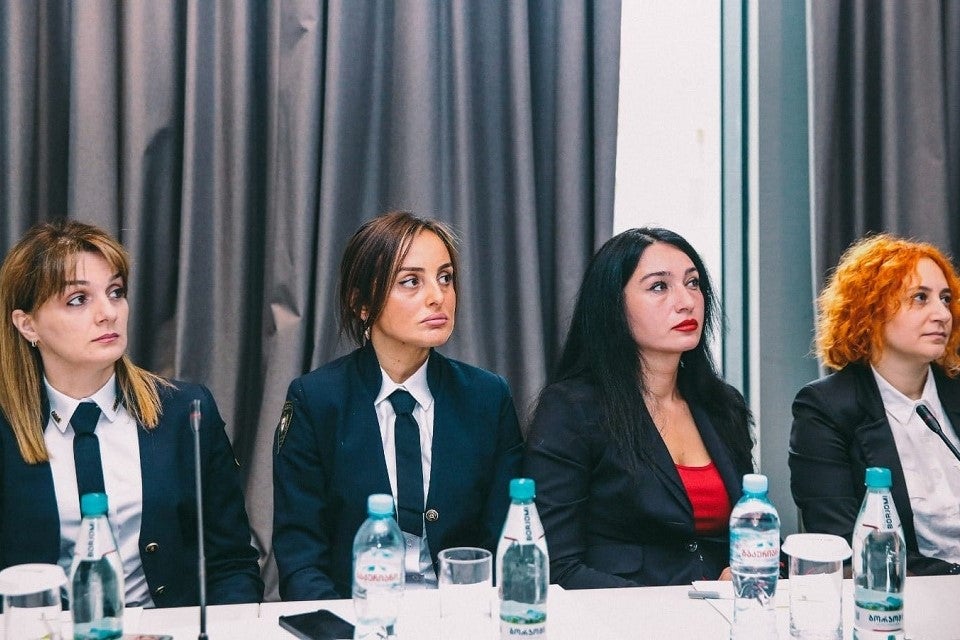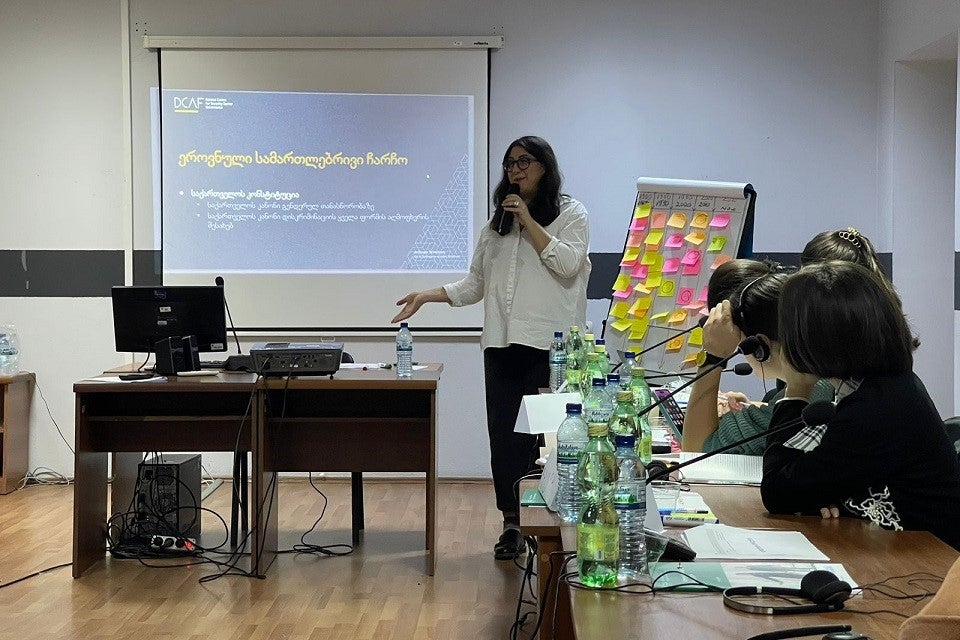UN Women supports implementation of Women, Peace and Security National Action Plan
Date:

UN Women supports the implementation of the National Action Plan on Women, Peace and Security, including through knowledge-sharing with representatives of relevant agencies and the provision of valuable educational and training courses.
For this purpose, significant initiatives were implemented in the scope of the annual 16 Days of Activism against Gender-Based Violence in November and December 2023 with the participation of the Ministry of Internal Affairs of Georgia (MIA). On 24 November, employees of the Ministry’s Human Rights Protection and Investigation Quality Monitoring Department, with UN Women support, conducted a training session on gender equality and the effective fulfilment of international commitments in this direction.
The training was conducted for the employees of the administrative and organizational support divisions of the structural units within the MIA. During the training, significant importance was paid to violence against women, in particular the mechanisms that have been established and implemented at the Ministry over the years to combat violence effectively. The training specifically focused on the changes made to the risk assessment tools and electronic supervision standards in 2023 with the support of UN Women.
It is noteworthy that at the Academy of the Ministry of Internal Affairs, a new training course has been implemented with the joint support of UN Women and the Geneva Centre for Security Sector Governance (DCAF) specifically for the police officers patrolling the villages along the dividing line. The course will help these officers to acquire better knowledge of the Women, Peace and Security agenda and effectively respond to the different needs of local women and girls.
Prior to the course’s implementation, a training for trainers was conducted from 6 to 8 December. During the three-day session, 10 representatives of the MIA Academy and the Human Rights Protection and Investigation Quality Monitoring Department were trained; these trainers will then be introducing and conducting the same course at the Academy.

During the training, which focused on the implementation of the Women, Peace and Security agenda and the creation of a gender-responsive police force, the participants familiarized themselves with gender equality and gender definitions, concepts, theories, and training methodologies and exercises on Women, Peace and Security topics.
“Integration of the Women, Peace and Security agenda in police activities is crucially important in order to protect the rights of the population affected by the conflict, and it is necessary to communicate with these people on peace-related processes to minimize security risks and ensure gender equality,” noted Ana Iluridze, a trainer, gender expert and course module author.
The events were organized based on the initiative of the Ministry of Internal Affairs in the scope of the UN Women project “Accelerating Implementation of the Women, Peace and Security Agenda in Georgia”, which is supported by the Conflict, Stability and Security Fund of the UK Government.